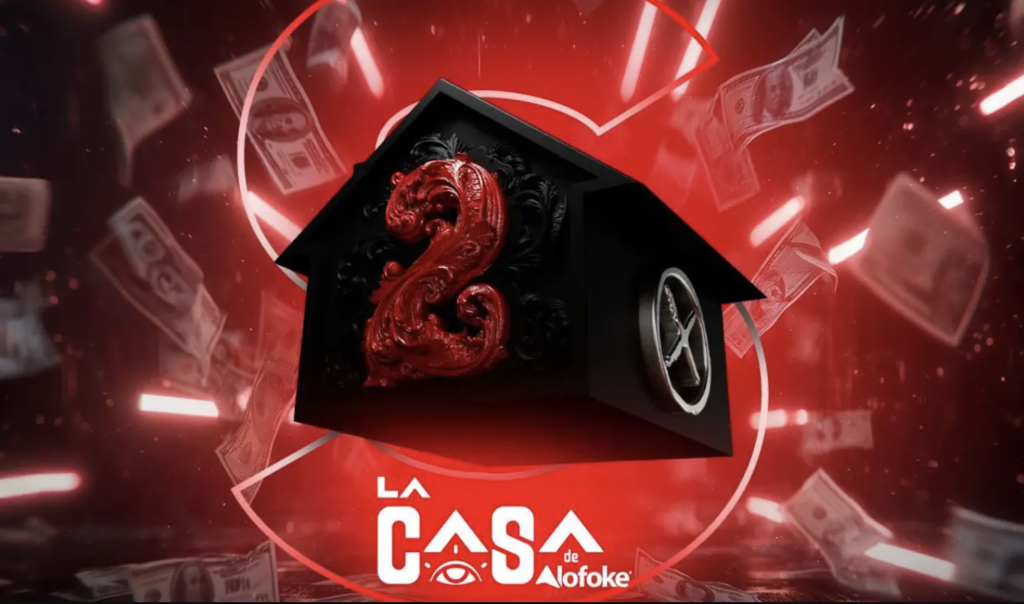
A cultural activist and theater director, Danilo Ginebra writes in Acento an opinion piece where he expresses his concern regarding what he calls “The Alofoke-fication of the country.” He translates this into “when vulgarity becomes culture.” He urges people to watch for the moral, political and social deterioration in the Dominican Republic. Danilo Ginebra is also brother of Freddy Ginebra, the iconic founder of Casa de Teatro cultural house.
He is critical of the impact on Dominican society of the Alofoke reality shows that have reaped the highest viewer ratings in history, causing concern of their impact.
DR1 shares a translation of the opinion piece:
“We live in a society where vulgarity has become the daily landscape. The degradation of human, civic, and moral values is shamelessly displayed across television, radio, and social media. Today, brazenness receives applause, “likes,” and advertising contracts, while the ethical development of our youth and the sense of civic responsibility are pushed into an ever-narrowing space.
“This is not a nostalgic longing for an idealized past, but an alarm over a reality that threatens our collective soul. Advertisers, corporations, and authorities sponsor this banality without measuring its impact. The state, with its cultural and educational institutions, appears to have renounced its moral duty to guide the nation. This degradation is not abstract: it filters into everyday life, silently molding the education of our children and teenagers.
“The spectacle of vulgarity is no longer just entertainment; it has become a reference point, a model of success, the new dominant language. Examples abound: shows that celebrate scandal, “influencer” contests that reward provocation, politicians who prioritize choreography over policy proposals, and networks where notoriety is confused with merit. Mediocrity is normalized. Intelligence and effort are not.
“From merit to scandal: emerging leadership
“Many Dominican media outlets have ceased to be spaces for reflection, transforming into showcases for exhibitionism. The so-called “Alofoke House” has become a symbol of this trend: morbidity disguised as freedom, aggression celebrated as authenticity, and vulgarity presented as modernity.
“The true danger lies not in the existence of these spaces, but in their legitimization. When banks, businesses, and State agencies finance such content, they send an unequivocal message to the youth: success is achieved by exhibiting the body, insulting others, or ridiculing intellectual effort. Thus, banality becomes currency and bad taste becomes an aspiration.
“The leadership that dominates today is born not from study or discipline, but from instantaneous notoriety. Ethical coherence becomes irrelevant; body exposure and intimate confessions do not. While teachers, thinkers, and artists are relegated, the most vulgar personalities become references for millions. The society of spectacle has displaced the society of merit. Young people confuse banality with success, and popularity with moral authority.
“Politics and the trivialization of power
“Vulgarity is not confined to entertainment; it also corrodes politics. Many politicians appear more focused on their stage presence than on public management. Electoral spots based on catchy music and choreographies, instead of proposals, evidence this decline.
“When politics becomes a spectacle, citizens cease to be actors in democracy and become mere spectators. Mediocrity is normalized, and public responsibility evaporates. Form replaces substance; pretense replaces statesmanship.
“Institutional complicity and the state’s responsibility
“The moral and cultural decline is not solely the responsibility of civil society. The President of the Republic, the Ministry of Culture, the Ministry of Education, and the National Commission of Public Spectacles have an inescapable duty to act.
“This is not about censorship, but about elevating the nation’s moral standards and ensuring that media with state concessions do not normalize vulgarity. If we continue to applaud insults, sexual provocation, and banality, we will form generations without ethical criteria or a sense of citizenship. Freedom of expression must coexist with the moral obligation to protect the collective soul.
“The shared task: education, family, and culture
“The reconstruction of our society demands shared responsibility:
Churches: Preach with coherence, without a double standard.
Teachers, cultural institutions, and universities: Reclaim intellectual leadership in the classrooms.
Media, communicators, and artists: Offer ethical and reflective alternatives.
Parents: Be the first moral example for their children.
“If we fail to do this, the “influencers of vulgarity” will form the country’s future leaders, not the educators of knowledge.
“Evident degradation, possible opportunities
“While we see programs that glorify rudeness for ratings, and influencers who gain fame globally without substance, there are also pockets of resistance: cultural institutions, music and dance schools, youth collectives creating educational content, independent theaters, reading spaces, and artistic projects that challenge banality.
“We must support these resistances to prevent the total ‘Alofoke-fication’ of the Dominican Republic.”
Read more in Spanish:
Acento
27 November 2025

